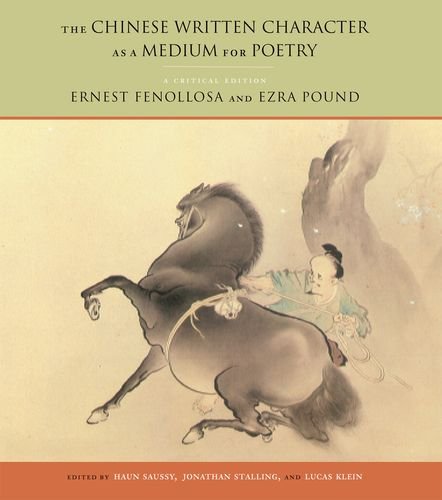Alice Oswald: Memorial: A Version of Homer’s Iliad (2011–)
Filed under book, fiction | Tags: · antiquity, classics, mythology, poetry, war

“In this daring new work, the poet Alice Oswald strips away the narrative of the Iliad—the anger of Achilles, the story of Helen—in favor of attending to its atmospheres: the extended similes that bring so much of the natural order into the poem and the corresponding litany of the war-dead, most of whom are little more than names but each of whom lives and dies unforgettably and unforgotten in the copious retrospect of Homer’s glance. The resulting poem is a war memorial and a profoundly responsive work that gives new voice to Homer’s level-voiced version of the world. Through a mix of narrative and musical repetition, the sequence becomes a meditation on the loss of human life.”
First published as Memorial: An Excavation of the Iliad, Faber and Faber, 2011
With an Afterword by Eavan Boland
Publisher W. W. Norton, 2012
ISBN 9780393088670
90 pages
Alice Oswald reads an extract from Memorial (video, 3 min)
Interview (Max Porter, White Review, 2014)
Reviews: Kellaway (Observer, 2011), Womack (Telegraph, 2011), Economist (2011), Logan (New York Times, 2012), Guriel (PN Review, 2012), King (Make, 2012), Stopa-Hunt (Oxonian Review, 2012), Spears (Rumpus, 2014).
Commentaries: Harrop (New Voices in Classical Reception Studies, 2013), Farrier (Environmental Humanities, 2014).
Publisher (Faber)
Publisher (Norton)
WorldCat
EPUB (updated on 2019-10-11)
Comment (0)Roman Jakobson: My Futurist Years (1992/1997)
Filed under book | Tags: · 1910s, 1920s, biography, dada, formalism, futurism, language, linguistics, literary theory, literature, poetics, poetry, slavic studies

“Born in Moscow in 1896, Roman Jakobson was a founder of and a key figure in two influential schools of 20th century literary thought: Russian formalism, and later, during his years in Prague, structuralism. Forced to flee the invading Nazis, Jakobson spent time in Denmark, Norway, and Sweden, before coming to the United States in 1941. During his long and illustrious academic career in the U.S., Jakobson was a professor of literature and linguistics at Columbia, Harvard and MIT. Up to his death in 1982, he published 500 monographs and articles on linguistics, Slavic studies, poetics, and semiotics.
Vital as the extraordinary innovative and turbulent period that spawned these writings, My Futurist Years is one of the most important reflections on the Russian Futurist movement and a cornerstone in the career of one of the century’s greatest linguistic and literary thinkers.
Jakobson’s rare sensibility in his explorations in language and art are no more evident than in this volume, detailing the formative moment in his public and personal life. Along with the quite moving recollections of his friendships with such Modernist figures as Mayakovsky, Khlebnikov, and Malevich, the book includes Jakobson’s letters to other Futurists active in the scene and to his close friend Elsa Brik, later to gain notoriety as the French writer Elsa Triolet and wife of the poet Louis Aragon.” (from the back cover)
First published in Russian as Jakobson-budetljanin: sbornik materialov, Almqvist & Wiksell International, Stockholm, 1992.
Compiled and Edited by Bengt Jangfeldt
Translated and with an Introduction by Stephen Rudy
Publisher Marsilio, New York, 1997
ISBN 0941419797
371 pages
in the Unlimited Edition
Review: Avril Pyman (Slavonic & East European Review, 1993).
PDF (21 MB, updated on 2019-9-27)
Comment (0)Ernest Fenollosa, Ezra Pound: Chinese Written Character as a Medium for Poetry (1919–)
Filed under book, essay | Tags: · literature, poetics, poetry

“First published in 1919 by Ezra Pound, Ernest Fenollosa’s essay on the Chinese written language has become one of the most often quoted statements in the history of American poetics. As edited by Pound, it presents a powerful conception of language that continues to shape our poetic and stylistic preferences: the idea that poems consist primarily of images; the idea that the sentence form with active verb mirrors relations of natural force. But previous editions of the essay represent Pound’s understanding—it is fair to say, his appropriation—of the text. Fenollosa’s manuscripts, in the Beinecke Library of Yale University, allow us to see this essay in a different light, as a document of early, sustained cultural interchange between North America and East Asia.
Pound’s editing of the essay obscured two important features, here restored to view: Fenollosa’s encounter with Tendai Buddhism and Buddhist ontology, and his concern with the dimension of sound in Chinese poetry.
This book is the definitive critical edition of Fenollosa’s important work. After a substantial Introduction, the text as edited by Pound is presented, together with his notes and plates. At the heart of the edition is the first full publication of the essay as Fenollosa wrote it, accompanied by the many diagrams, characters, and notes Fenollosa (and Pound) scrawled on the verso pages. Pound’s deletions, insertions, and alterations to Fenollosa’s sometimes ornate prose are meticulously captured, enabling readers to follow the quasi-dialogue between Fenollosa and his posthumous editor. Earlier drafts and related talks reveal the developmentof Fenollosa’s ideas about culture, poetry, and translation. Copious multilingual annotation is an important feature of the edition.”
Critical edition
Edited by Haun Saussy, Jonathan Stalling, and Lucas Klein
Publisher Fordham University Press, 2008.
ISBN 0823228681, 9780823228683
240 pages
Reviews: Armstrong (Sign Language Studies, 2009), Nicholls (Modernism/modernity, 2010), Beam (Oyster Boy Review, 2012).
Commentary: Williams (2009).
Publisher (2008)
Fenollosa’s documents in the Beinecke Library.
Version published in The Little Review, 1919: 6:5 (Sep 1919), 62-64, 6:6 (Oct 1919), 57-64, 6:7 (Nov 1919), 55-60, 6:8 (Dec 1919), 68-72 (at Index of Modernist Magazines).
Version printed in Instigations, 1920, 357-388 (at Internet Archive), HTML (at Project Gutenberg).
Critical edition, 2008: EPUB.

